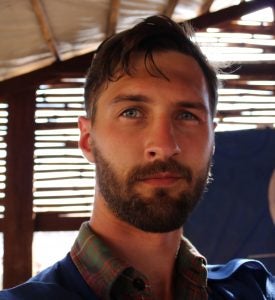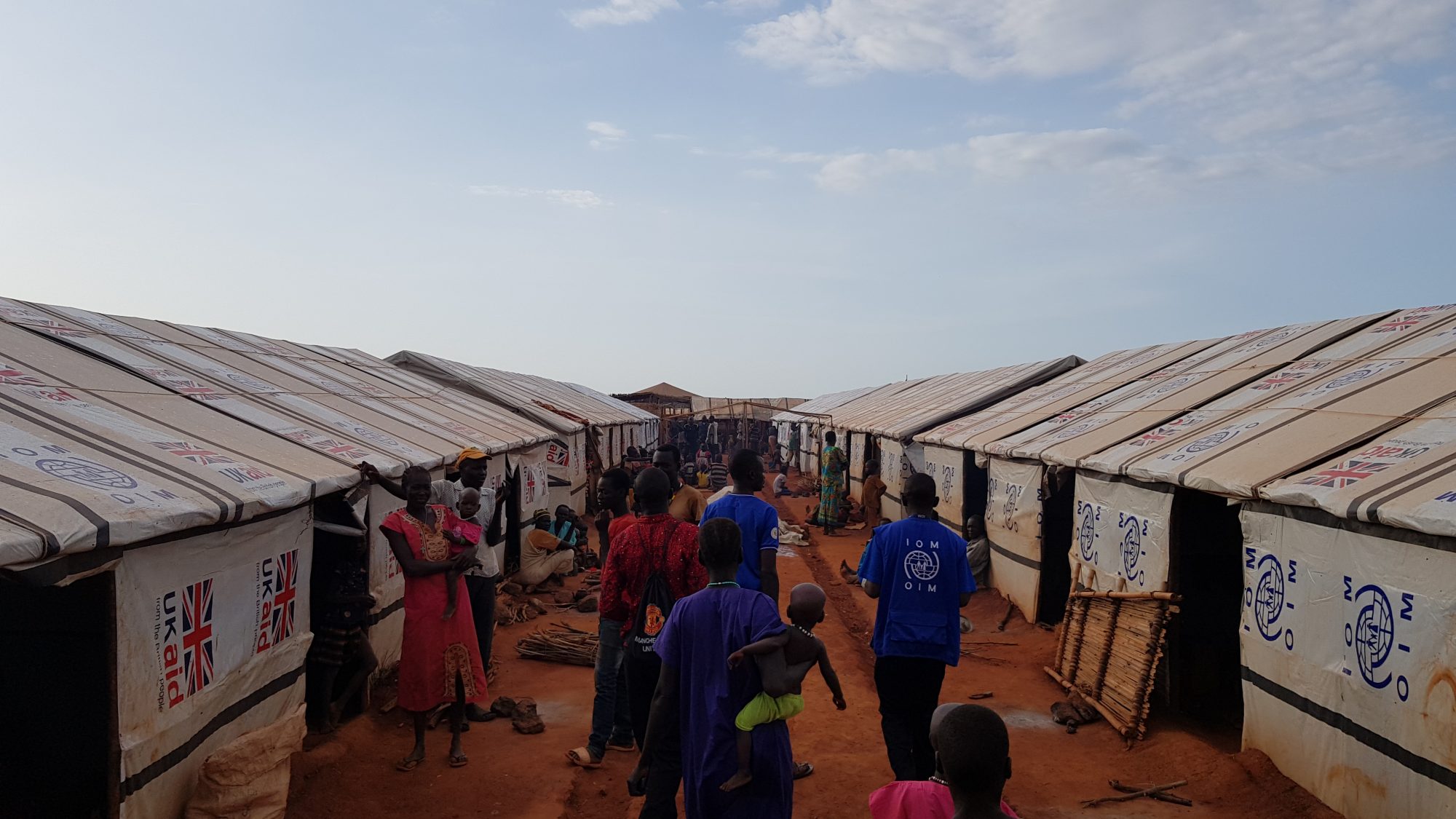Can you describe the work you are doing to support refugees and migrants with IOM in South Sudan?
Civil war, natural disaster, and sub-national violence in South Sudan has forced over one and half million people to flee their homes inside the country, as well as millions more to depart as refugees. As a Camp Manager for internally displaced persons and State Focal Point for the CCCM Cluster, I work with people who have often lost homes and family members and been forced to take refuge in camps as well as in schools, churches, and neighboring communities.
In the same way that a City Manager in your hometown coordinates things like garbage removal and road maintenance alongside a town council, a Camp Manager oversees NGOs and UN Agencies to provide life-saving humanitarian services such as water, food, shelter and medical care alongside a camp committee of elected IDP leaders. I also manage a Camp Management Mobile Response Team to reach people who fled to remote locations or are victims of renewed violence or natural disasters like flooding.

How did MSFS prepare you for your career?
Within humanitarian work, Camp Management is a great place for a “generalist.” You need to know a bit about every sector and be able to quickly find the right technical person or resource to problem-solve. You must also write well and advocate effectively. You end up being part diplomat, part labor negotiator, and part political affairs researcher. MSFS helped me build some of these foundational skills with the support of great mentors. My real hard currency from MSFS was a set of analytical frameworks for complex and time-constrained problems with no clear answer. I also completed the Refugees and Humanitarian Emergencies Certificate from ISIM, which gave a good introduction to the humanitarian field.
What inspired you to work in migration?
I grew up on a farm in rural Ohio and had a really long bus ride every morning to reach my grade school. Every morning, the bus driver would play NPR, which at that early time in the morning carried the BBC World Service, which served as a sort of morning story time filled with far away places and characters. So I blame childhood romanticism and public broadcasting for my interest in international relations. I decided on the humanitarian field from a moral calculation: I believe it is one of the places in international relations where there is the least ambiguity about whether my work contributes to a greater good.
How has the COVID pandemic impacted your work? How has the pandemic uniquely impacted the communities you serve?
The pandemic has definitely had a major impact on humanitarian work. In the early days of the pandemic, staff were stranded outside the country or unable to reach field locations, humanitarian flights and logistics were disrupted, and there was a great deal of uncertainty and contingency planning around how serious the virus would affect displaced communities. In some cases, COVID took focus away from other localized emergencies and we all got a crash course in remote management.
The pandemic has undoubtedly seriously and negatively affected displaced communities. Most notably, the pandemic has worsened an ongoing economic and inflationary crisis that has further degraded people’s ability to feed and support themselves. Some displaced persons have made the decision to move out of camps prematurely for fear of virus outbreaks in the congested conditions, which may put them at risk outside the sites. It is hard to measure the direct impact of the illness itself, as testing is not widespread, but fortunately we have not seen spikes in deaths in the camps I manage. This may be due to our mitigation measures or other environmental, contextual, or epidemiological factors. I cannot say for sure, but COVID risk mitigation remains one of our top priorities.

